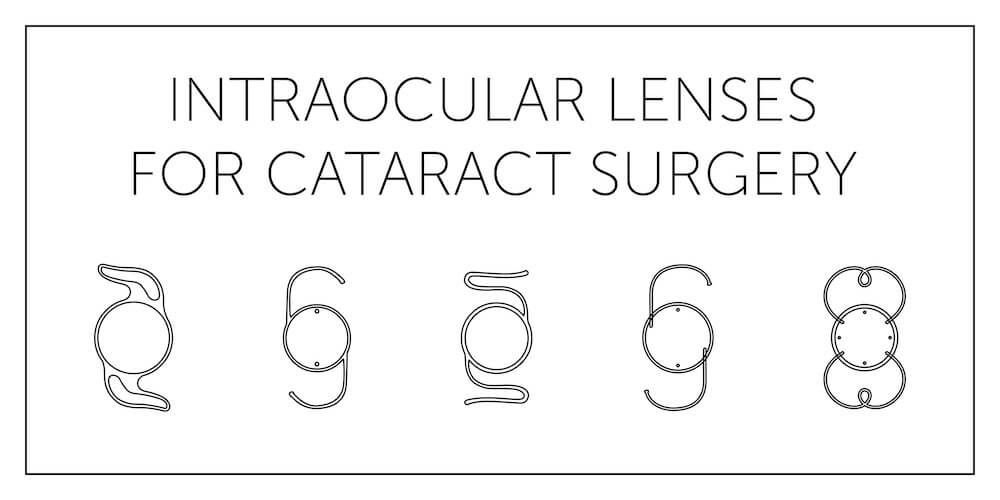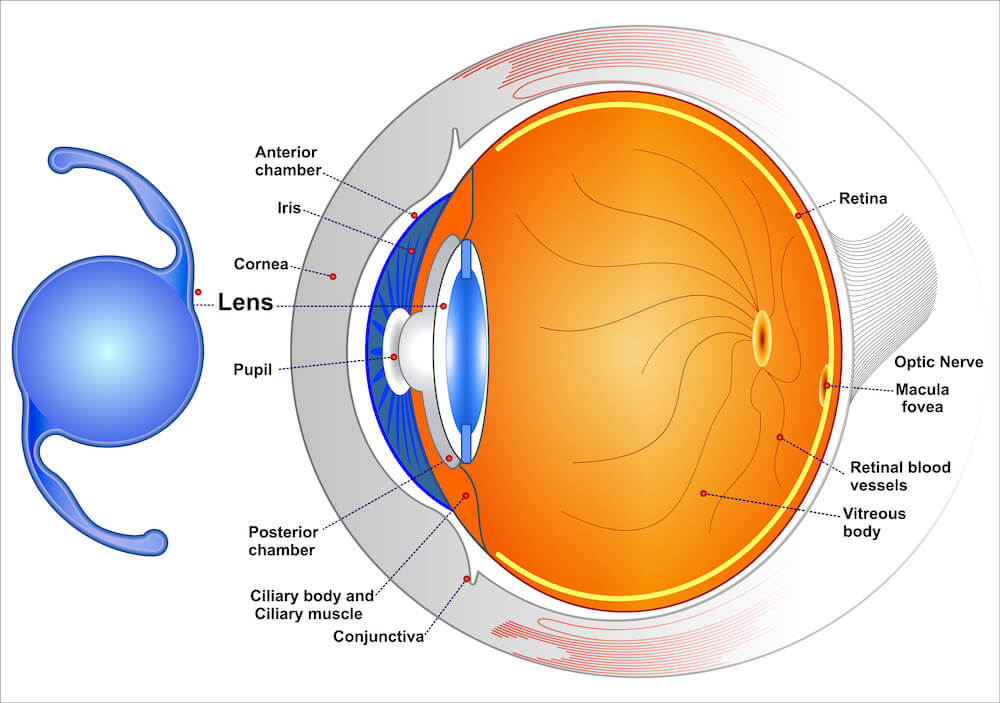
A cataract is the clouding of an eye’s lens. Cataracts form when the two dominant elements that make
up
our eye’s lens, water and protein, “clump” together and block/blur vision.
This condition is very common and affects nearly half of all Americans by the age of 80. The good news is that you don’t have to live with cataracts.
In the early stages of cataract development, symptoms may be subtle (often, most people do not even realize a cataract may be forming!). However, as a cataract progresses, you will begin to notice one or more of the following:
Intraocular lenses (IOLs) are permanent, replacement lenses placed in the eye following cataract removal. Similar to a camera lens, IOLs focus your vision and deliver a clear, crisp image.

Premium IOLs are far more advanced than the standard lenses used for lens
replacement.
While standard lenses are effective in improving vision and
delivering a clear image, premium lenses specifically correct astigmatism as well as
distance, midrange, and near vision.

If you answer “Yes” to any of these questions, you may be a candidate for Premium IOLs

Yes! For those who have already developed a formal cataract, typically found in patients ages 60 and above, we recommend modern cataract surgery.
Yes. Although aging is the prime culprit in most cataracts cases, there are other causes of cataracts, such as:
Treatment is suggested depending on the severity of symptoms and cataract development. For patients
with
fully-developed cataracts, cataract surgery is the recommended solution.
However, if your
symptoms suggest that you’re showing early signs of development but not a full cataract yet, other
treatment options are available.